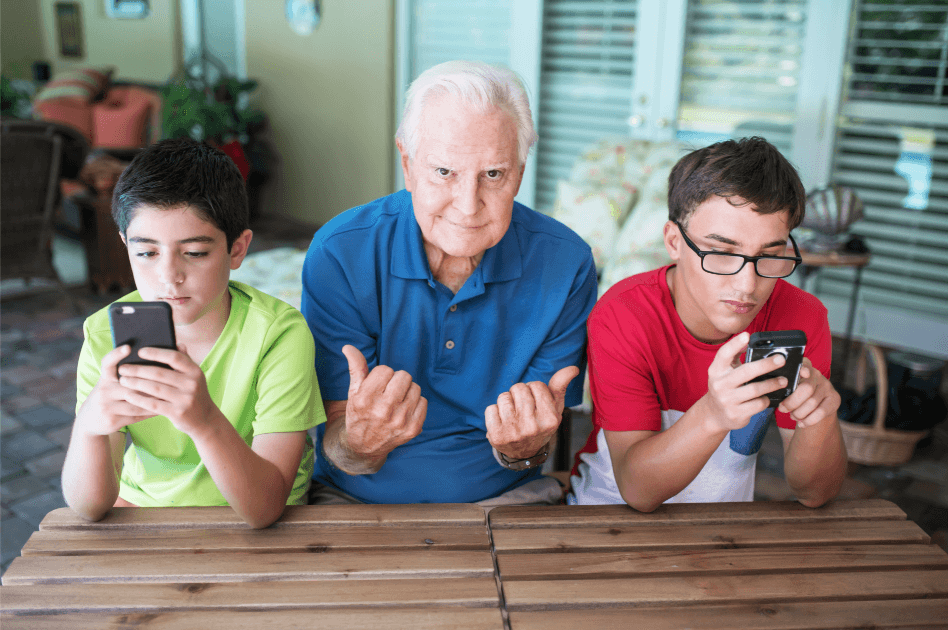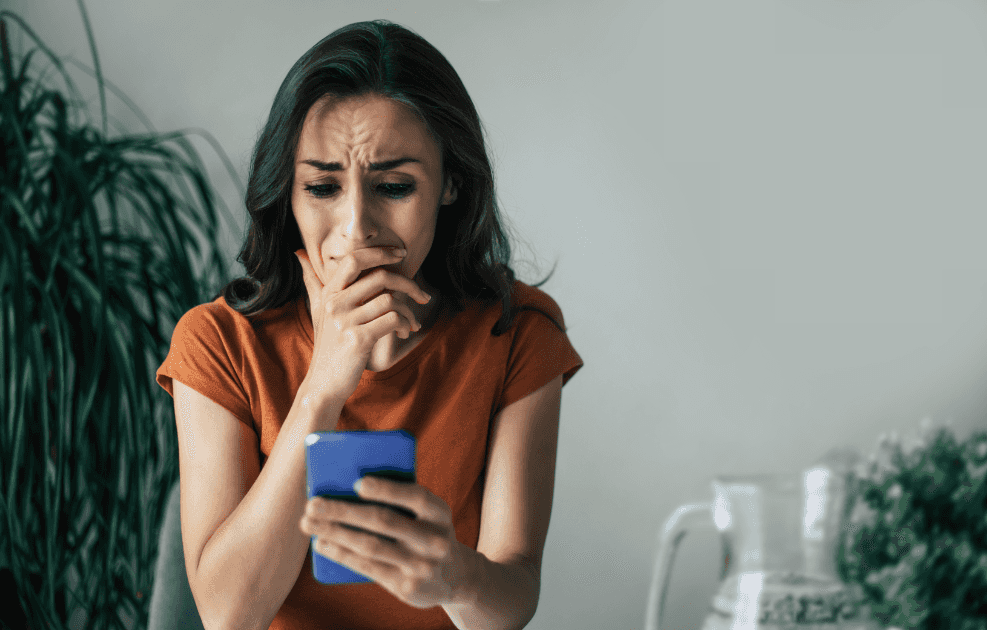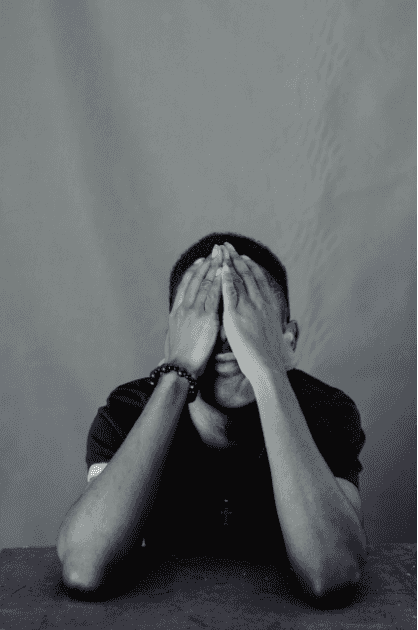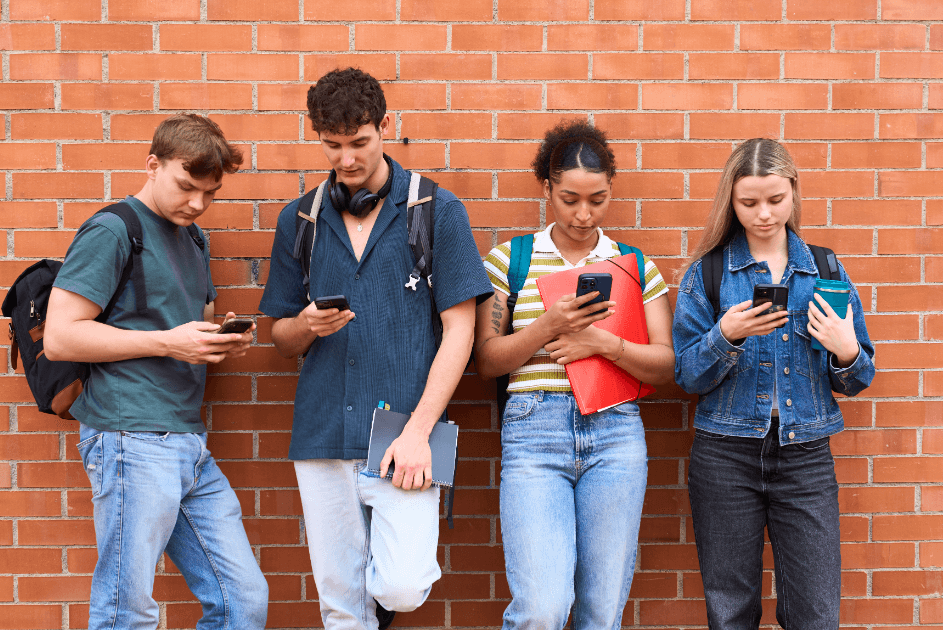Teachers share how different students are in 2024 than when they first started teaching
So many teachers got brutally honest about the struggles they've been facing in the classroom.

Things have changed. And not necessarily for the better.
The country is experiencing a major teacher burnout right now, and has been for quite a while. Obviously, COVID-19 only exacerbated issues that were already present. But beyond dealing with grossly low wages, a never-ending list of extra responsibilities, and battling against phones for attention, there’s a more existential shift in students that’s making teachers become both disillusioned with their vocation and concerned about this younger generation.
Recently, someone considering becoming a teacher asked other more experienced educators on Reddit to share the "biggest difference you see in kids from the time you started teaching to right now in 2024?" The responses offer a bluntly candid glimpse of some of the challenges faced in schools today—but there are also some positive nuggets thrown in.
Here are some of the top answers.
1. "Level of curiosity... [it's] almost non-existent today. When I started in the '90s, there were always a handful of students in every class that wanted to know 'Why?' but in recent years, it's either 'Just tell me the answer' or 'Who cares? Just mark it wrong.'"—u/Pretend_Screen_5207
2. "I can't show movies or videos anymore because it is all boring to them. It is boring because they have Netflix on their phone and they can watch whatever they want at any time. It isn't special to watch a movie. "—u/Ferromagneticfluid
3. "Fine motor skills seems to be way down. I teach instrumental music, and kids [being able to figure] out where to put their fingers and how to maneuver them has gone way down since COVID." —u/eagledog

4. "A huge difference I’ve noticed is it is becoming disturbingly common for parents to explicitly tell their kids that they don’t have to follow school rules. Students are always so smug about it when they say that their mom gave them permission, and then equally enraged when they still receive the related consequence because mom doesn’t make the rules at school…Absolutely could never have been me when I was a student, and this was not a thing when I first started teaching. But this kind of attitude has grown increasingly more common every year." —u/kaelhawh
5. "Kids just seem dumber overall. Could be the area I teach in, but basic math and literacy skills have constantly trended downward here. We keep lowering the bar for interventions because we don't have enough spots if half the school needs math and reading support.” —u/Baidar85
6. "Year 22 starts in July. I don't know if I can put it in words, but there's an air that little children have: it's a combination of silliness, joy, fearlessness, creativity, curiosity, imagination, and sweetness. Occasionally some naughtiness creeps in but it's all very innocent...I've taught K-1 most of my career and while many little kids still have all of these qualities, it's astonishing how many kids don't. You hand them a piece of paper and they say, 'I don't know what to draw,' or 'I don't like to color. You put on a silly dancing song and they not only refuse to stand up, they sit there whining 'This is BORING.' The water during science turns blue and they say 'Whatever.'

I think they're growing up too fast... They're afraid of looking silly or getting dirty or drawing attention to themselves by asking a question. They'd rather be on their phones more than anything in the whole wide world, but since they're at school, a Chromebook will do. If they're asked to do something challenging or ‘boring' they'll run to the counselor to complain about their big feelings so they can get access to a screen to 'calm down.' My kids are 5 to 8, generally, and they've just... lost a huge developmentally appropriate part of their childhoods. It's going to have long-lasting societal repercussions." —u/azemilyann26
7. "I’ve moved schools so I’m gonna have a rare opinion; they got much better in every area possible. Smarter, kinder, more respectful, self-aware, less entitled."—u/swift-tom-hanks
8. "I just finished year 34, all in upper elementary and middle school. Back in the day, I'd have one or two kids in a class who didn't give a flying f**k and who did literally nothing. Now it can be a third of the class. It's mind-blowing. I will have several assignments over the course of a trimester where less than half of the class will get the thing done and turned in. Nearly every assignment will have a couple of kids who write their names on it and then turn in blank pieces of paper." —u/DerbyWearingDude
9. "I've been in early childhood [education] for 10 years now, [and] was a sub for about five years before that. What I've noticed since COVID is a profound lack of social skills. Not just a lack of curiosity or emotional dysregulation, which I've seen in spades, but an inability to play or talk or cooperate with other kids. Each kid is their own little island and they have zero interest in visiting other islands. "I've literally had to teach 5-year-olds how to play basic 'toss the ball' games or work together to build a wall of blocks' whereas before, they would be coming up with wacky 'Calvinball' type games on their own and pulling everyone under four feet tall into the game with barely any effort. Now, I might as well be trying to teach them physics in Klingon." —u/the_owl_syndicate
10. "Their handwriting is…comically big, completely illegible, letters not formed correctly, not within lines/margins if it's on loose leaf paper - straight up looks like a 1st grader wrote it. And this [is] junior high...Sometimes I feel so frustrated at them not getting incredibly basic art concepts and techniques, such as copying a similar value/line/angle or whatever, then realize they can't even write a letter 'g 'correctly, and it makes sense." —u/_crassula_

11. "The maturity level has been reduced about three or four years since I started in 1990."—u/Felixsum
12. "As an English as a foreign language teacher, here's a positive one: the internet/phones/tablets have made English accessible for EVERYONE. "Even in countries like Egypt where the parents speak no English at all, I'm noticing their kids have a great base level just from playing on their phones. It's pretty cool! Even young kids know quite a bit now." —u/Accomplished-War1971
13. "When I sub, I rarely see students reading books or drawing for fun (even in art class); they mostly use their laptops/phones to listen to videos or play games…But even more baffling are the ones who are told to put devices away [and] just sit in complete and total silence and do nothing but stare at the desk the entire class. They don't do worksheets, they don't do homework, they don't draw; nothing."—u/Seamilk90210
14. "Been teaching middle school for 12 years. Kids are now testing lower than ever. I’d say I have around 10-15 middle schoolers that are testing at a 1st-3rd grade level. Students also lack the ability to be resourceful and persevere. They give up the moment something gets too difficult." —u/TraditionalSteak687

15. "At the start of my career, on days leading up to and day of an assessment, my mornings would be absolutely devoured by students seeking extra help. Like, a full hour before the first bell I'd be circulating around answering questions and I would have to make a turn order and consolidate kids who had the same questions. Last three or so years? Absolutely silent. One kid might come in and ask me one question they didn't really need to ask and just want some reassurance."—u/enigma7x
And let's end with a sweet one to remember it's not all terrible...
16. "28 years of experience... It's genuine kindness. Kids are so much more kind now than they were when I started in the '90s. They are so accepting of kids of different races, gender identities, [and] intellectual differences like autism. 'Accepting' isn't even a strong enough word. Kids [who] would be in such different social circles due to peer pressure in the '90s are friends now. I'm a straight white guy [who] was in high school in the '80s. I wish I was brave enough then to be as kind as kids are now. I have plenty of complaints about phone addiction or the inability to multiply 5x4 without a calculator, but this is the most kind generation of students I've ever taught." —u/scfoothills
This article originally appeared last year.
- Meet Mr. Joffee, fourth-grade teacher and living proof that teachers change lives. ›
- It's long past time for teachers to be compensated for the work they actually do ›
- I asked dozens of teachers why they're quitting. Their answers are heartbreaking. ›
- Teacher ditches classroom rules, reframing them as four R's - Upworthy ›
- Let's help teachers by clearing their Amazon wish lists - Upworthy ›
- Veteran teacher's touching message to first-year teachers - Upworthy ›
- Teacher reveals 4 surprising skills kids need before 5th grade - Upworthy ›
- Teacher leaves brutal note for 11-year-old girl who shared her hopes and dreams and gets immediately shut down - Upworthy ›
- Teachers says she runs her classroom like a 'corporate office'—including giving PTO - Upworthy ›
- Mom can't believe she's having trouble pronouncing her newborn's name - Upworthy ›
- Teachers share signs students have good relationship with parents - Upworthy ›
- High school teacher explains his 4 Rs of classroom management - Upworthy ›
- Professor teaches biochemistry concepts with pop song parodies - Upworthy ›
- One student interaction led teacher to change her curriculum - Upworthy ›
- A student whose parent died started coming to school with messy hair. Her teacher stepped in. - Upworthy ›







 A terminally ill woman in her hospital bed. via
A terminally ill woman in her hospital bed. via 
 Family baking fun in the kitchen.
Family baking fun in the kitchen. Three generations smiling by the sea.
Three generations smiling by the sea.
 A grandpa with his grandsons on their smartphones.
A grandpa with his grandsons on their smartphones.  Young woman crying while holding her phone.
Young woman crying while holding her phone. Boy with his head in his hands.
Boy with his head in his hands. "A Fair Puritan" by E. Percy Moran, 1897.
"A Fair Puritan" by E. Percy Moran, 1897. Kids glued to their phones.
Kids glued to their phones.
 Katie's skin condition made it hard to attract a rescuer. Courtesy of
Katie's skin condition made it hard to attract a rescuer. Courtesy of  Katie's potential for love is so clear. Couresty of
Katie's potential for love is so clear. Couresty of